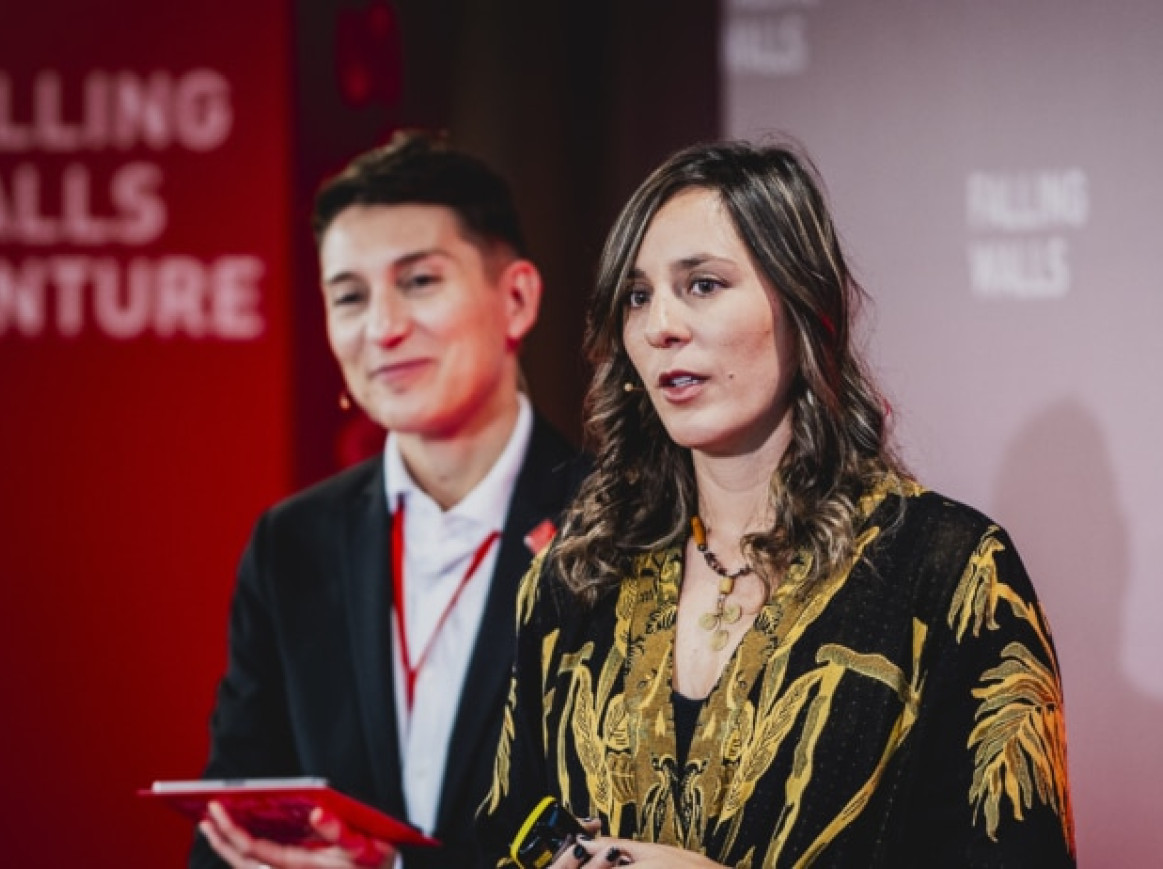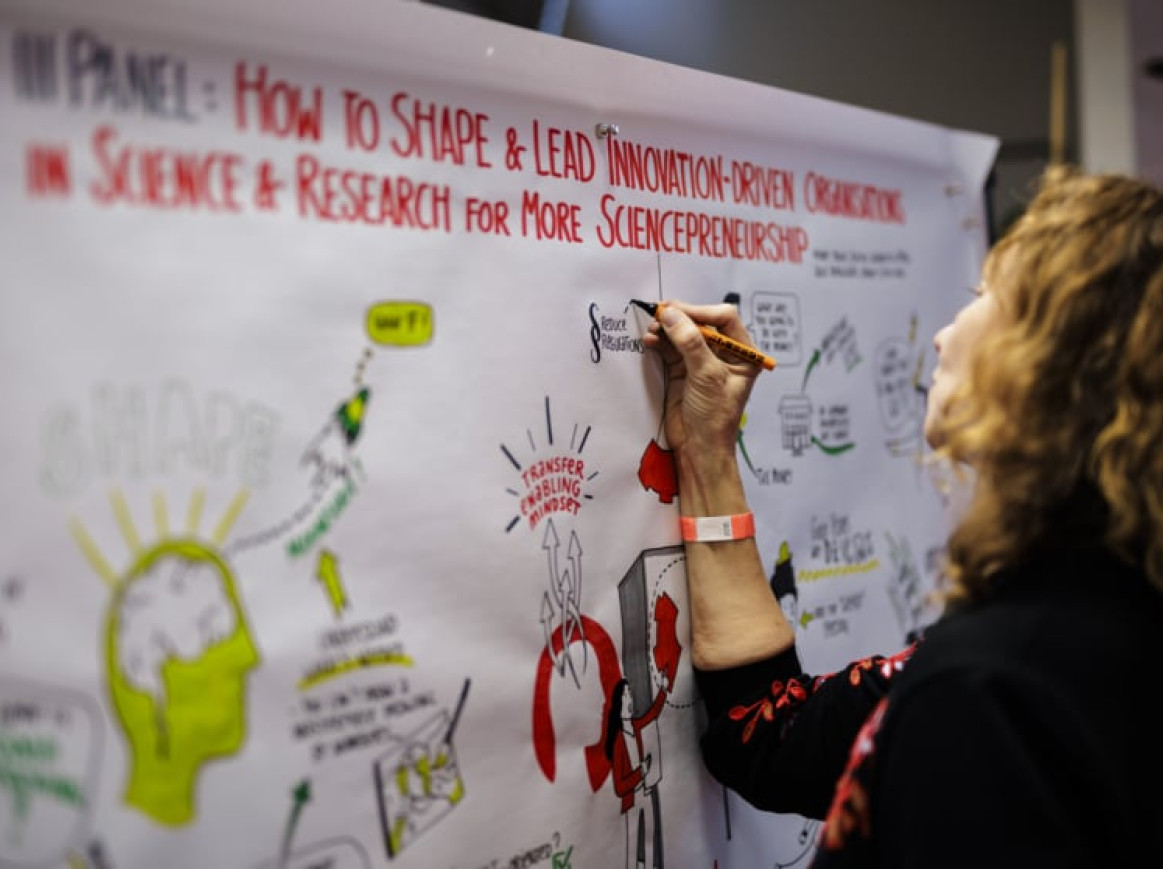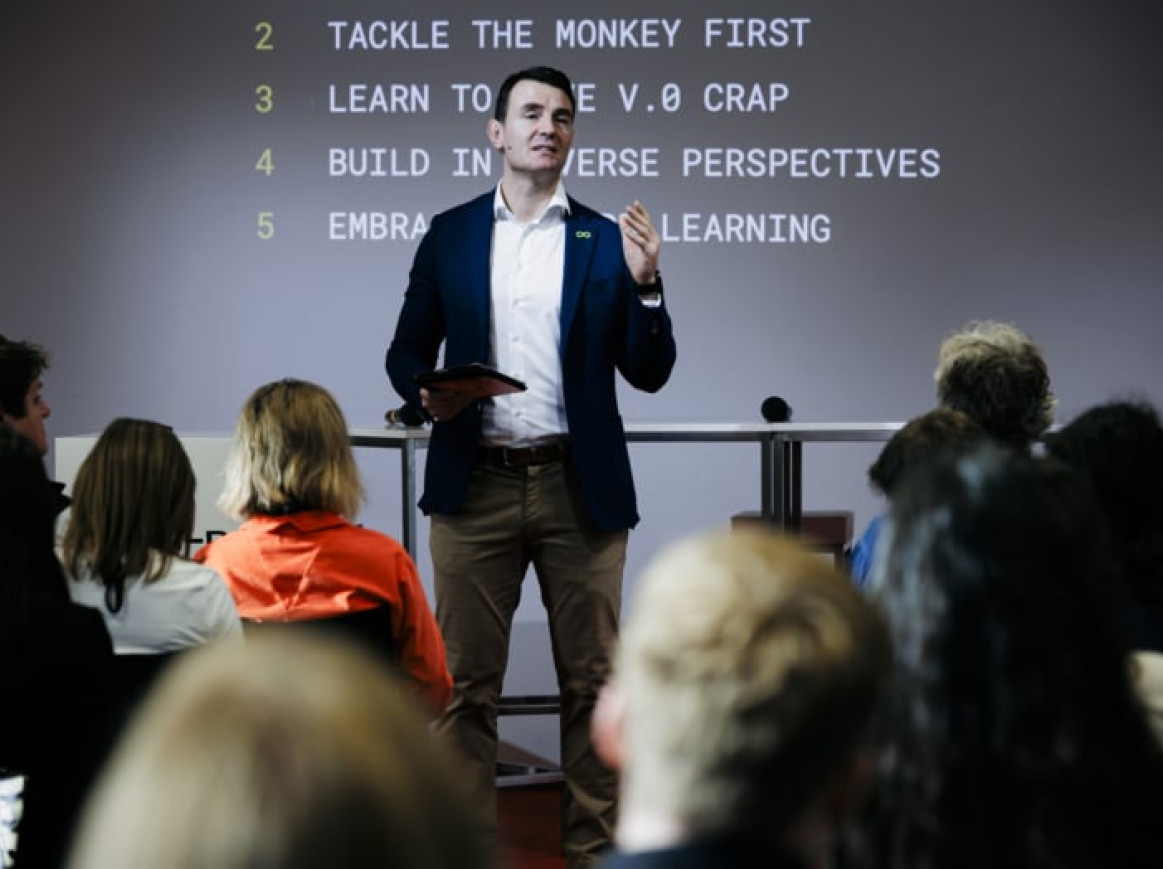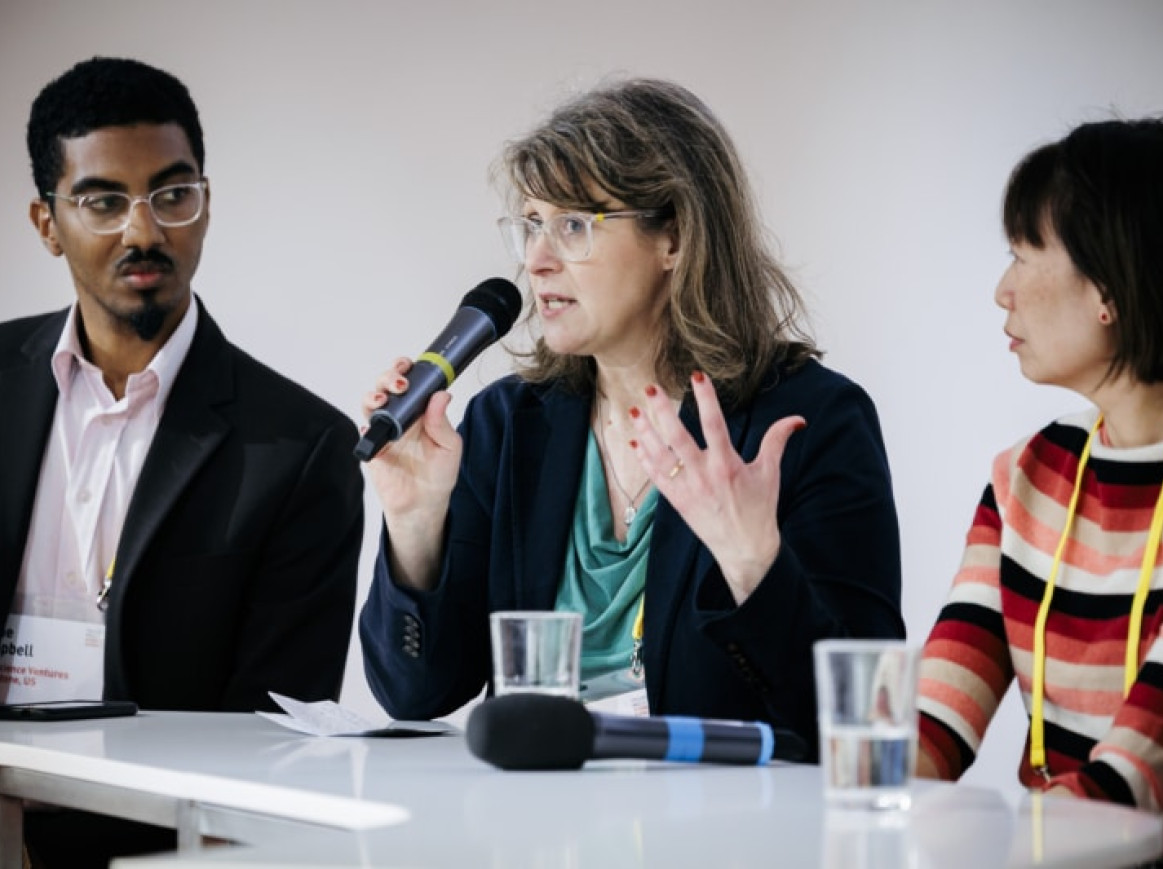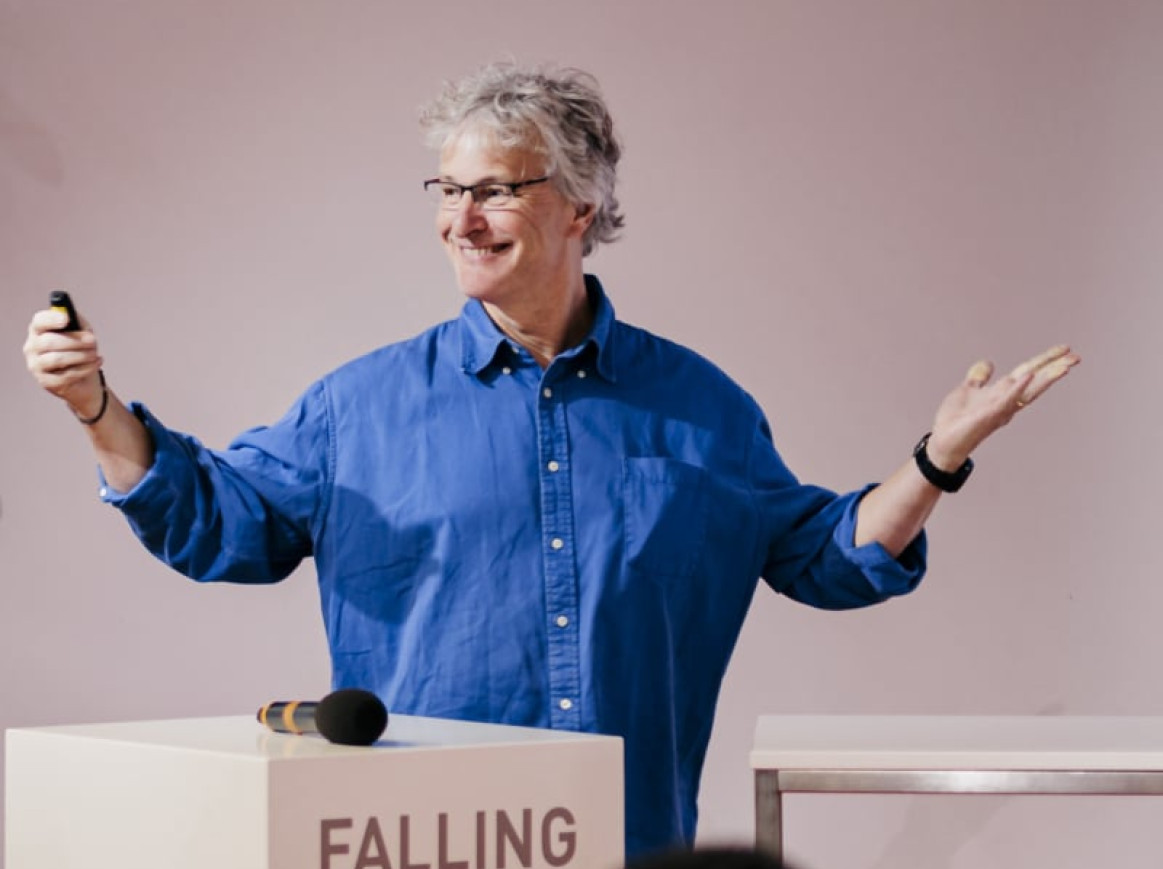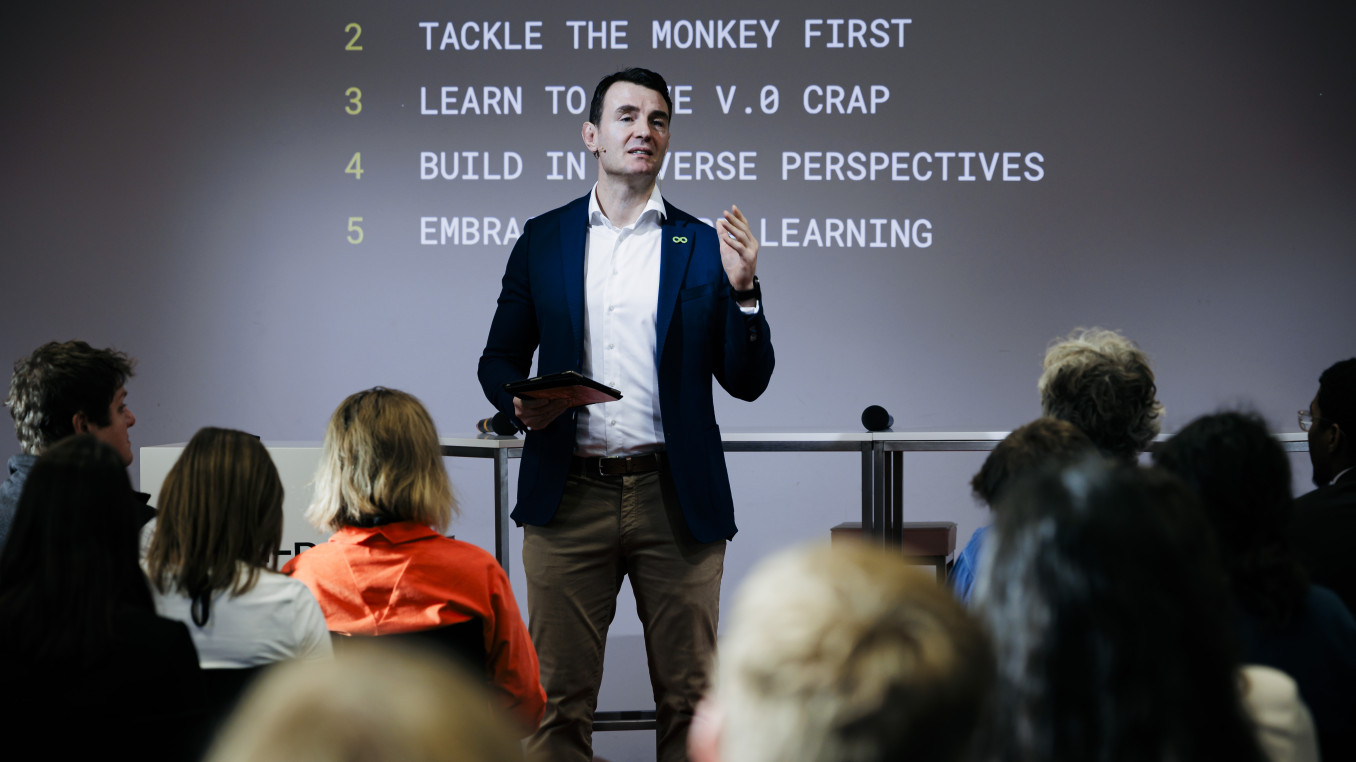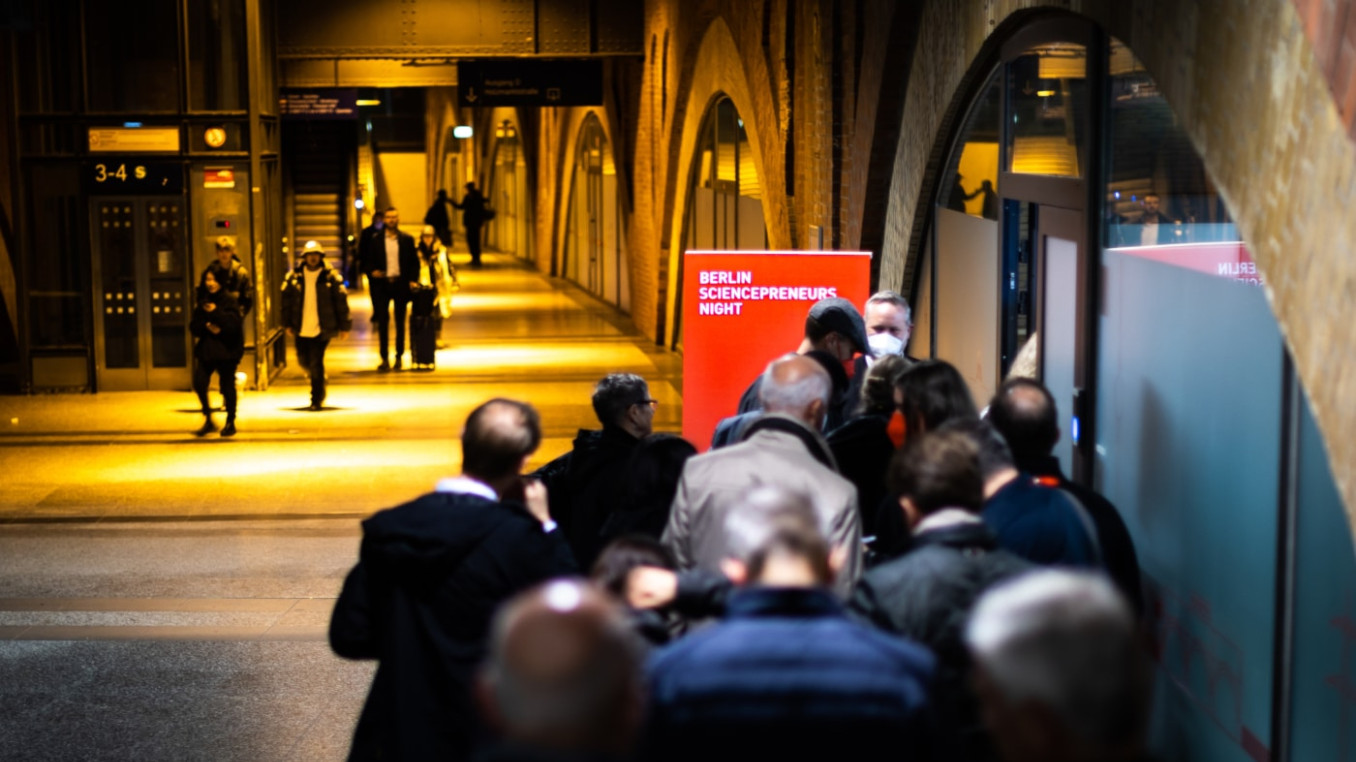Sciencepreneurs Forum 2023
The Sciencepreneurs Forum 2023 brought together prominent scientists, entrepreneurs, investors, start-ups, and policymakers to explore ways to enhance the manner in which science contributes economic value to society.
At Sciencepreneurs Forum 2022, we focused on the ‘enabling environment for sciencepreneurship’. 2023 we zoomed in a bit more on the topic of culture change, more specifically the mindset and culture change we need to foster and support venture creation within the science & research establishment.
Disruptive technologies were introduced within the context of existing markets and policies. Consequently, numerous obstacles must be overcome to ensure sustainable progress. Our solution? A global forum that promotes knowledge exchange and responsible innovation, connecting sciencepreneurs, investors, policy makers, and researchers.
7 NOVEMBER
International startups pitch on the fields of sustainability, engineering of the future and health solutions. Throughout the year, universities and institutions from all over the world are called upon to nominate the most innovative science start-up for the competition. The most promising young companies, our winners carefully selected by our Advisory Board, are invited to pitch on the Falling Walls Venture stage in Berlin on 7 November.
The 2023 Falling Walls Venture winners can be found here. The Science Breakthrough of the Year 2023 in the Science Start-Ups category (Falling Walls Venture) went to Reyedar
An exclusive networking event for start-ups, investors and the ecosystem at SAP. An evening with innovators from across the globe. By invitation only.
8 NOVEMBER
The primary goal of digital health is to ensure optimal health for all citizens. Addressing the complexity of today's health challenges necessitates diverse expertise and involvement from various players. Adopting an open innovation approach, we have developed a range of tools and initiatives that engage society, academia, and industry. Community projects and organizations are accelerating the transfer of knowledge and data, leading to innovative discoveries and technological solutions through the wealth of new health data generated by these efforts. This panel shows that new concepts and partnerships are essential to create an open innovation playing field and that the city of Berlin, at the heart of Europe, is an excellent starting point. The event is cohosted by our partner, Berlin Partner for Business and Technology.
Petra Ritter, Bert Arnrich, Thomas Schildhauer
Moderation Flavia Kruse, Berlin Partner
The event is co-hosted by our partner, Berlin Partner for Business and Technology
To catalyze scientific breakthroughs, the SPRIND Sciencepreneurship Symposium brings together thought leaders, policy makers, transfer professionals, executives, and entrepreneurs to discuss key issues and current structures to strategically accelerate innovation ecosystems. At the end, more science-based technology start-ups should be empowered to change the world for the better. Last year we focused on the ‘enabling environment for sciencepreneurship’. This year we would like to zoom in a bit more on the topic of culture change, more specifically the mindset and culture change we need to foster and support venture creation within the science & research establishment.
The SPRIND-Symposium started at 2pm and included 4 panels
- 2.00 pm Keynote by Benoit Schillings
- 2.15 pm Panel on talent development systems
- 3.00 pm How to shape and lead innovation-driven organisations in science & research?
- 4.00 pm The data conundrum: how to measure and track culture change?
- 5.00 pm Next-generation innovation policies to effectuate transformational change
Moderation Aidan McCullan
The event is co-hosted by our main partner, the German Federal Agency for Disruptive Innovation - SPRIND
Most discussions around how to effectuate culture change focus on the next generation. Training and development of young researchers remains too often locked in established processes and incentive systems. To leverage the potential of young research talents, organisations have to review and often change their organisational model. On this panel we would like to discuss and showcase new and different approaches to talent development vis-à-vis encouraging and supporting young researchers to start and scale ventures. One very new and exciting initiative, the Venture Science Doctorate (VSD), was launched in November last year by Deep Science Ventures. It presents a complete rethink of the traditional PhD model.
With following speakers:
Lisa Ericsson, Thane Campbell, Juliana Lim, Reyedar (presented by Alessandro Grillini)
Promotion to leadership positions in science and research is mostly contingent on an individual’s successful track record in research. They have to be accepted among their peers as a ‘prime among equals’. Managerial responsibilities and having held other positions of influence also play a big role in the appointments. However, integrating translational achievements (e.g. patents or spin-off formation) into the list of appointment criteria is still not very common, let alone appointing individuals with an entrepreneurial or business track record to leadership positions within research.
With following speakers;
Benoit Schillings, Rafael Laguna de la Vera, Henry Marx, Julia Borggräfe
When it comes to outlining a problem or challenge, the typical response is ‘give me data’! For a subject matter such as measuring or tracking an amorphous, shape shifting ‘beast’ such as culture the challenge is formidable. In an ideal world progress and development could be tracked through something like a ‘culture barometer’, so a set of qualitative and quantitative indicators that can be tracked overtime and that could also help in setting priorities and in identifying those actions and interventions with the highest impact.
On this panel we have a great group of individuals from the areas of investment, start-up data analysis and entrepreneurship research who routinely collect, analyse and deal with data in their daily practice. All of them are deeply committed to building and supporting the entrepreneurial ecosystem. What trends, both positively or negatively, can be discerned from the data?
with following speakers:
Thomas Hellmann, Orla Browne, Matthias Hilpert
The concluding panel is meant to focus on the role, contribution and impact that better and more effective policies can have in order to effectuate the culture change we need to move the needle on sciencepreneurship. For years, governments have patiently invested funds into technology transfer and start-up support structures based on the implicit assumption of a ‘build it and they will come’. Such efforts went in conjunction with integrating ‘pathways to impact’ assessments into research proposal evaluations at European and national levels, once more based on the assumption that through this the system could somehow slowly and steadily be nudged to reform itself. Has it worked?
With following speakers:
Allison Duettmann, Darja Isaakson, Mario Brandenburg, Frank Buchholz

